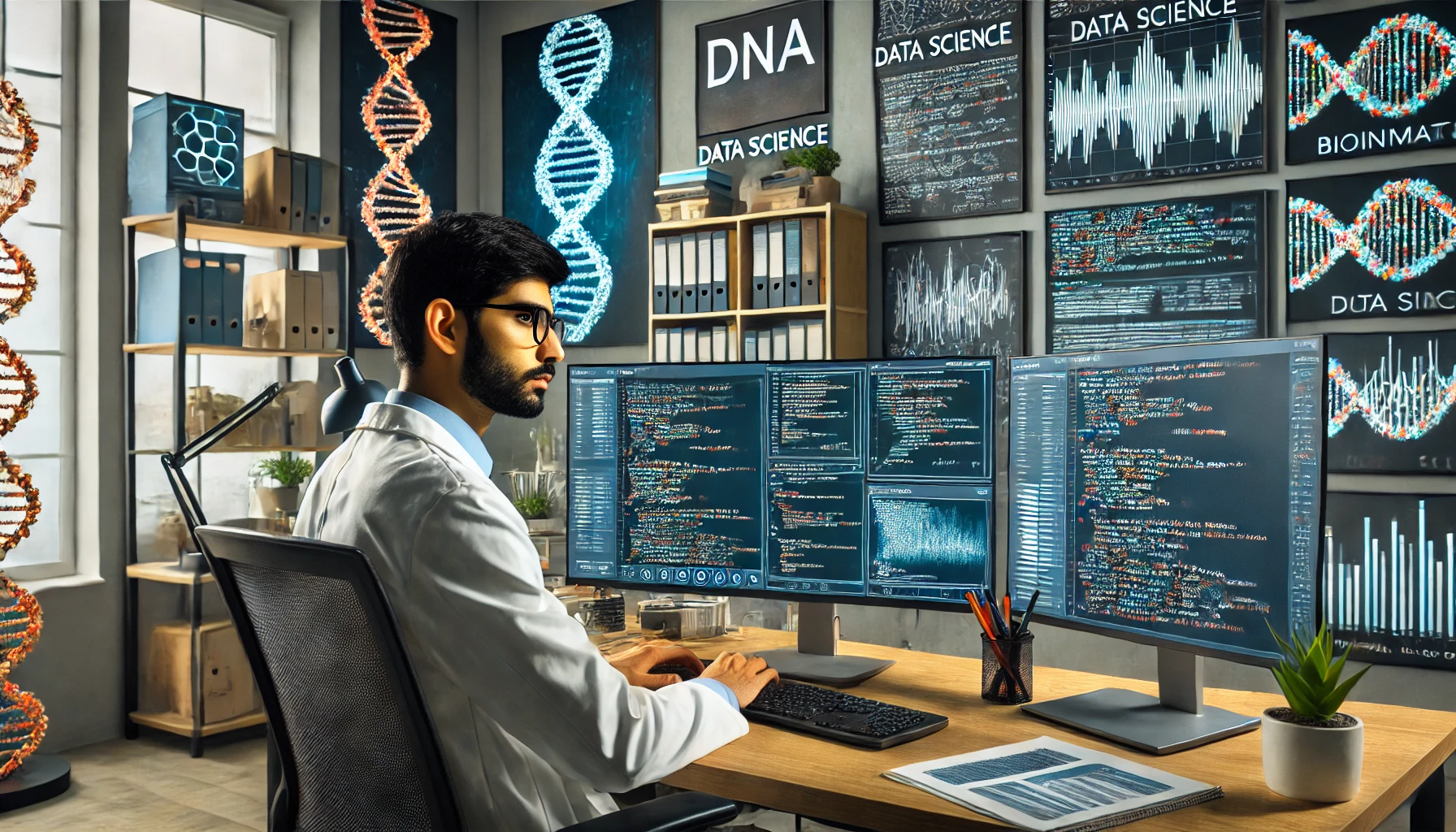SyncBio's 7 Tips! Mastering the Data Science Skills to Secure Your Data Scientist Position!
October 13, 2024

At SyncBio, we recognize the growing importance of data scientists in today's data-driven environment. Industries such as bioinformatics, research, and pharmaceuticals rely heavily on data for strategic decisions. As this demand for skilled data professionals continues to rise, we believe that aspiring data scientists must cultivate a diverse range of skills. Developing seven key competencies is crucial for standing out and securing a position in this competitive field.
1. Statistical Analysis
Statistical analysis is the cornerstone of data science. Mastery of statistical methods is essential for analyzing complex data patterns and making data-driven decisions. A strong grasp of key concepts like hypothesis testing, regression analysis, and probability distributions allows data scientists to extract valuable insights from datasets. This foundational knowledge is vital not only for interpreting outcomes but also for creating experiments and validating predictive models.
While data science offers a rewarding career path, it's important to remember that mastery doesn't happen overnight.
In other words, imagine trying to learn three languages at once - that's what combining biology, data science, and computer science is like. I’ve seen people, only a few years into their journey, claiming to be experts. Remember, true expertise in bioinformatics is like fine wine; it gets better with time.
2. Programming Expertise
Following less experienced people and beginners can lead you down the wrong path. Imagine if someone who just started cooking tried to teach you complicated recipes. You might end up with a kitchen disaster! It's the same with bioinformatics.
Programming skills are essential for any data scientist. Knowing languages like Python and R is key for handling data, building algorithms, and automating workflows. Python stands out for its flexibility and wide range of libraries like Pandas and NumPy, which make data manipulation easier. On top of that, being skilled in SQL is crucial for efficiently querying databases. These programming abilities enable data scientists to work with data smoothly and generate valuable insights.
3. Data Visualization
The ability to visualize data is another critical skill for data scientists. In SyncBio effective data visualization techniques help translate complex data findings into accessible and compelling narratives. Tools such as Matplotlib, seaborn, pandas and ggplot enable data scientists to create visual representations that highlight key trends and patterns. By communicating insights through clear and engaging visuals, SyncBio data scientists can ensure that their findings resonate with stakeholders and drive informed decision-making.
4. Machine Learning Knowledge
At SyncBio, we recognize the critical role predictive analytics plays in advancing medicine. A deep understanding of machine learning algorithms, such as linear regression, decision trees, and neural networks, is essential for medical data scientists. This expertise allows them to build predictive models that enhance patient outcomes, optimize treatment processes, and improve diagnostic accuracy, ultimately giving healthcare organizations a significant edge in delivering high-quality care.
If you're interested in integrating machine learning into your organization, don't hesitate to reach out to SyncBio for support.
It's important to consider a mentor who has made significant contributions to impactful projects, such as developing a bioinformatics tool that researchers globally utilize.
5. Data Wrangling
At SyncBio, we recognize the vital role of data wrangling—the process of cleaning and preparing medical data for analysis—in the field of medicine. Real-world medical data can often be messy, filled with inconsistencies, missing values, and errors. Our data scientists are skilled at identifying and correcting these issues to ensure the integrity and reliability of their analyses. By mastering data wrangling techniques, we improve the quality of insights and streamline the analysis phase, ultimately leading to more efficient workflows and enhanced patient care.
6. Big Data Technologies
In today's era of rapid data growth, understanding big data technologies is becoming increasingly vital due to the exponential growth of medical data. Tools like Hadoop and Spark enable data scientists to process and analyze large datasets that traditional methods may not be able to handle. Familiarity with distributed computing and data storage solutions is essential for extracting valuable insights from extensive medical records, clinical data, and research findings, particularly in an industry that generates vast amounts of information.
7. Domain Expertise
Ultimately, possessing domain expertise in healthcare can greatly enhance a data scientist's effectiveness. Understanding the specific nuances of the medical field allows data scientists to ask the right questions and identify the most relevant insights. This contextual knowledge improves the applicability of their analyses, enabling them to make recommendations that align with clinical objectives and improve patient care outcomes.
Conclusion
In conclusion, the journey to becoming a successful data scientist in the healthcare field necessitates a combination of technical skills and medical domain knowledge. Mastering areas such as statistical analysis, programming, data visualization, machine learning, data wrangling, big data technologies, and healthcare-specific expertise equips aspiring data scientists with the necessary tools to excel in this rapidly evolving landscape. By developing these essential skills, candidates can establish themselves as valuable assets to organizations aiming to leverage data to improve patient outcomes and enhance healthcare delivery.


